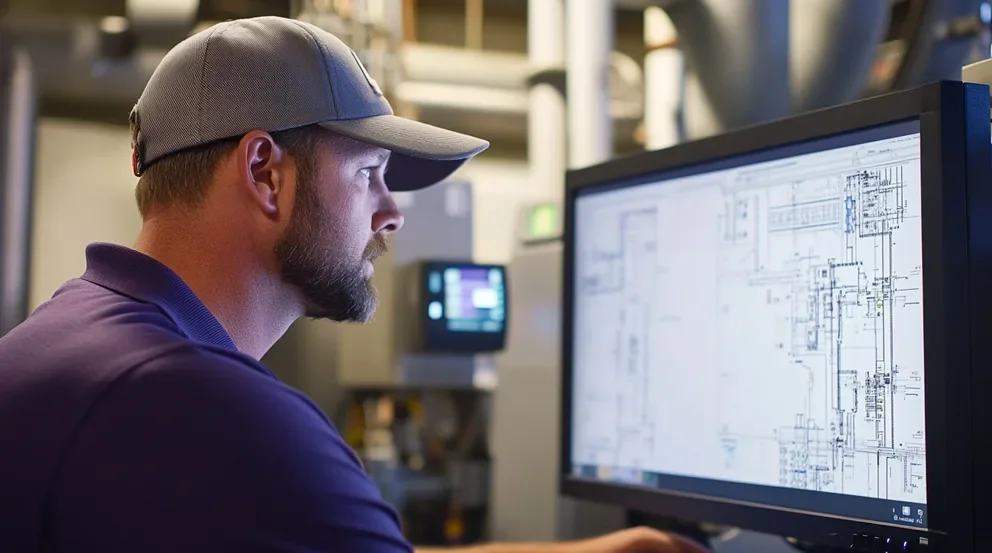Field Team Management is a business practice that focuses on the management of a team of people who are working in the field, often away from a traditional office or headquarters. It involves managing the team members’ working hours, tasks, responsibilities, and progress. It also involves communication between the team members themselves as well as between the team and headquarters.
Field Team Management is especially important in industries that require workers to be in the field for extended periods of time, such as in the construction industry or the energy industry. Field teams may be responsible for gathering data, inspecting sites, performing repairs, or providing customer service. The way in which a team is managed can have a major impact on the team’s productivity and efficiency.
Field Team Management involves a variety of management techniques, such as goal-setting, task delegation, and performance evaluation. It also involves the development of policies and procedures that ensure that team members are working in a safe and effective manner. Additionally, it involves the development of communication strategies to ensure that team members are kept informed and able to coordinate their efforts.
Finally, Field Team Management also involves the implementation of systems that allow for the tracking of team members’ progress and the monitoring of their performance. This helps to ensure that the team is meeting its goals and that its performance is at an acceptable level. By having a comprehensive system in place, teams can be managed more effectively and efficiently, resulting in improved productivity and performance.
What are the benefits of Field Team Management?
Field Team Management offers a variety of benefits for both the team and the organization. It helps ensure that teams are working efficiently and effectively, while also allowing for better communication between the team members and headquarters.
One of the major benefits of Field Team Management is improved productivity. By having a system in place that monitors and evaluates team members’ progress, teams can be managed more efficiently and be held accountable for their performance. This helps to ensure that the team is meeting its goals and that its performance is at an acceptable level.
Field Team Management also helps to create a sense of ownership among team members and encourages them to take responsibility for their work. This helps to foster a sense of teamwork and collaboration, which can lead to improved performance. Additionally, Field Team Management helps to ensure that team members are kept informed and up-to-date on their tasks and responsibilities. This can help to reduce confusion and misunderstandings, leading to better results.
Finally, Field Team Management can help organizations save time and money. By having a comprehensive system in place, teams can be managed more effectively and efficiently, resulting in improved productivity and performance. This can help to reduce costs and make the organization more profitable.
What are the challenges associated with managing a field team?
Managing a field team can be a difficult and challenging task due to the fact that team members are often working in different locations and may be spread out over large geographic areas. Therefore, effective communication and coordination between team members and headquarters is essential.
In addition, managing a field team requires teams to stay organized and on task in order to be successful. This can be difficult, as team members may be dealing with a variety of issues and tasks in different locations. Additionally, managing a field team often involves managing the team members’ working hours, tasks, responsibilities, and progress. This requires an efficient system for tracking and evaluating team members’ performance.
Another challenge of managing a field team is ensuring the safety of team members. Field teams may be subject to a variety of risks, such as extreme weather conditions, hazardous materials, and dangerous tools. Therefore, it is important to have policies and procedures in place to ensure that team members are working in a safe and secure environment.
Finally, managing a field team can be difficult due to the fact that team members may have different skills and levels of experience. This can lead to uneven performance, which can be difficult to manage. Additionally, team members may not always be able to work together effectively, leading to disagreements and misunderstandings. Therefore, it is important to ensure that team members have clear roles and responsibilities and understand the objectives of the team.
What techniques are used to measure the performance of a field team?
There are a variety of techniques that can be used to measure the performance of a field team. These include:
• Monitoring and evaluating team members’ progress – This involves tracking the amount of work completed by each team member, as well as the quality of their work. This helps to ensure that team members are meeting their objectives and staying on task.
• Analyzing customer feedback – Field teams often interact with customers, and it is important to measure their level of satisfaction with the services they have received. Surveys and other forms of customer feedback can help to provide valuable insight into how well the team is performing.
• Measuring employee engagement – It is also important to measure how engaged and motivated team members are. This can be done by tracking the number of hours worked, how much time is spent on specific tasks, and any feedback from team members about their satisfaction with the work they are doing.
• Analyzing financial data – Financial performance is also an important indicator of how well a field team is performing. By analyzing costs and revenues associated with each task or project, it is possible to measure how profitable the team is.
• Conducting internal audits – Regular internal audits can help to identify any areas where improvements may be needed in order to improve performance.
By utilizing these techniques, organizations can gain valuable insight into the performance of their field teams and make necessary adjustments as needed. These metrics can also be used to reward and recognize team members who consistently perform well.
Additionally, these techniques can be used to identify areas where the team can improve, allowing organizations to take corrective action as needed. This ultimately helps field teams to remain organized and productive, allowing them to meet their objectives and drive successful results.
How can Field Team Management help improve productivity?
Field Team Management can help to improve productivity by streamlining the management of team members. This includes having a clear system for tracking and evaluating individual team members’ performance, managing workloads, allocating resources, and setting goals. By having an efficient system in place, teams are able to work more effectively and efficiently while still meeting deadlines and objectives.
Additionally, Field Team Management can help to identify areas where the team may be underperforming or not meeting its goals. This allows organizations to address issues quickly and take corrective action as necessary. It also helps companies keep track of their teams’ progress over time, allowing them to make adjustments as needed in order to maximize productivity.
Finally, Field Team Management provides an opportunity for teams to collaborate and communicate more effectively. This can help to reduce misunderstandings and disagreements, allowing for smoother operations and better results. By utilizing these methods of Field Team Management, organizations can ensure that their teams are productive, efficient, and successful.
What types of communication strategies should be used for a field team?
For a field team to be successful, it is important to have effective communication strategies in place. This includes setting up regularly scheduled meetings where team members can discuss their progress and any issues that may arise. It is also important for teams to use clear and concise language when communicating with one another, as well as practice active listening skills.
Additionally, teams should make use of technology such as video conferencing or instant messaging to keep in touch with members who are not physically present. This helps to ensure that everyone is on the same page and able to stay updated on what is happening within the team.
Finally, it’s important for teams to take advantage of non-verbal communication techniques such as body language and facial expressions. This helps to ensure that everyone understands what is being said and can provide feedback in a meaningful way. By utilizing these communication strategies, field teams can improve their efficiency and effectiveness, leading to increased productivity.
What systems can be used to track the progress of a field team?
There are a number of systems that can be used to track the progress of a field team. These include project management tools such as Trello and Asana, as well as time-tracking applications like Toggl or Clockify. Additionally, spreadsheets and databases can also be utilized to track tasks and resources allocated to each project.
By utilizing these systems, organizations are able to stay on top of their teams’ progress and make necessary adjustments accordingly. This helps ensure that budgets and timelines remain on track while still meeting objectives. It also provides valuable insight into how teams are performing over time, allowing for any necessary changes or improvements to be implemented quickly and efficiently.



